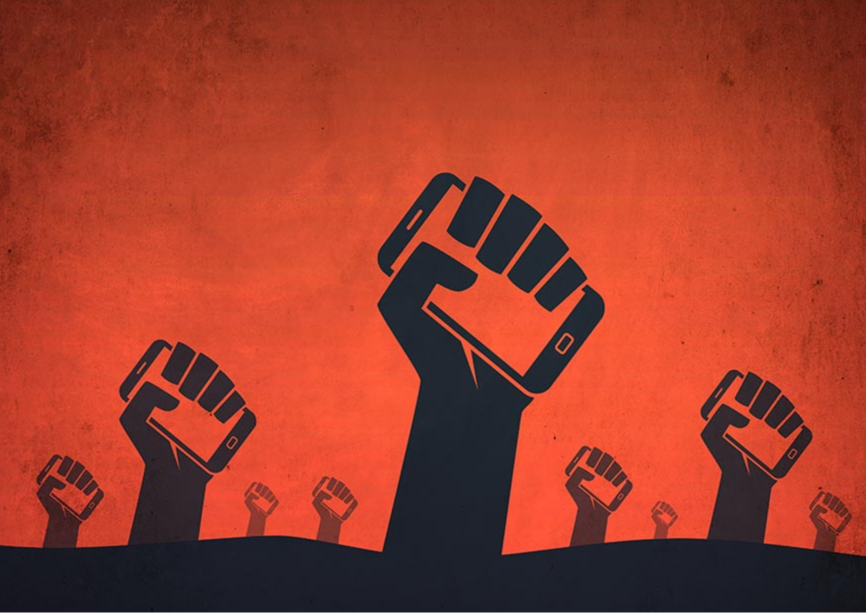
This article is part of the series—Raisina Edit 2024
Hamas’ attack: Disrupting the Middle East peace process
Until the second half of 2023, Middle Eastern and Muslim nations had relegated the Palestine issue to the sidelines, often preferring realpolitik gains over showcasing ideological support for Palestine. With the United Arab Emirates (UAE)—one of the strongest power brokers in the region—normalising ties with Israel (among others) under the Abraham Accords, it seemed that its close ally, Saudi Arabia, was likely to follow suit and the Palestinian cause would have been forgotten. Even Turkish President Recep Tayyip Erdoğan, a staunch financial and logistical supporter of the armed group Hamas, was slowly increasing trade and other ties with Israel in a bid to shore up his own declining economy and make use of the discovery of gas in the Mediterranean Sea. The United States (US) under Biden was slowly easing into the idea of a Middle East peace process unencumbered by Israeli actions in Palestine.
The United States (US) under Biden was slowly easing into the idea of a Middle East peace process unencumbered by Israeli actions in Palestine.
Yet, these processes were significantly impacted by the 7 October attacks in Israel when Hamas tore through sophisticated Israeli defence systems to launch a coordinated land, air, and sea attack. In the process, Israeli citizens were killed or captured, leading to a brutal response by Israel that has killed many Palestinians over the last few months.
Repercussions
The ensuing war between Israel and Palestine has led to widespread condemnations of both Israel and Hamas and major geopolitical changes in the region. Firstly, the trajectory of the Abraham Accords came to a standstill and was even reversed in some instances. Saudi Arabia, which was on the verge of normalising relations with Israel, had to pause its plans and focus on ending the war as soon as possible. Erdoğan, who seemed neutral initially, soon resorted to vocal criticisms of Israel and its leader Netanyahu.
Frustratingly for the Israeli leadership, not only has it been unsuccessful at achieving its initial goal of destroying Hamas, but its actions were also referred to the International Court of Justice for plausible genocide. While no concrete judgement was passed, the deliberations of its actions came as a major blow to its image in the court of global public opinion.
The trajectory of the Abraham Accords came to a standstill and was even reversed in some instances.
Most recently, calls for a two-state solution have increased significantly. A two-state solution refers to the carving out of a separate Palestinian state based on borders agreed to in 1967, a move that would give Palestine sovereignty and, subsequently, presence in international bodies like the United Nations. Israeli PM Netanyahu has roundly rejected such a step, seeing it as a security threat.
Yet, these calls have only grown in strength since the war began. Even US President Biden, Israel’s closest ally, has reiterated his calls for a two-state solution after the war subsides. Saudi Arabia recently declared that it would not normalise ties with Israel without a two-state solution on the table.
Explaining the political reversals: Public opinion
The trajectory of the Middle East’s relations with Israel before October 2023 and long-term US support for Israel make it evident that ideological factors are not motivating these renewed calls for a two-state solution. A new entry within the blackbox of foreign policy-making has been the strong presence of public opinion in support of Palestine, compelling state leaders to take positions that are at least neutral, if not positively towards Palestine.
Social media has been one of the strongest tools used by netizens to shed light on the various brutalities of the Israeli army in Palestine and to influence public opinion. Within this, citizen journalists such as Wael al-Dahlouh and Motaz Azaiza have documented various issues in Palestine that bypassed traditional media outlets and reached ordinary citizens across the world.
Social media has been one of the strongest tools used by netizens to shed light on the various brutalities of the Israeli army in Palestine and to influence public opinion.
So severe has been the effect that a TikTok official had to issue a clarification that it was not the algorithm favouring pro-Palestinian opinion, but that TikTok users were overwhelmingly posting in its favour. In addition, news outlets such as Al Jazeera, TRT World, RT News, and alternative media that do not take a Western line on the conflict have given more options for the public to consume news that is pro-Palestinian.
This has had a strong effect on domestic politics in many countries. For instance, US President Biden’s approval rating has dropped significantly over the Palestine issue. This marked one of the first instances that a foreign policy issue not involving American soldiers (at least for the first few months) led to a drop in approval ratings. The Democrats are also facing a tight election in 2024 with ex-President Donald Trump trying to come back. Against this backdrop, swing states like Michigan, Arizona, Minnesota, etc. with significant Arab-American populations, have launched campaigns to vote against the Democrats, leading to moves such as unveiling an Islamophobia register to pacify Muslim voters.
Similarly, Türkiye and Saudi Arabia too have been moved by the pressure of public opinion. Thus, even though Erdoğan tried to maintain a neutral stance and has offered to mediate in the conflict, public opinion in the country, as seen in large pro-Palestine demonstrations, led him to shift his stance and condemn Israel harshly. Similar patterns can be seen in many other countries like Egypt, Jordan, and many other Arab- and Muslim-majority nations across the world. For instance, Bahrain, which had normalised ties with Israel, recalled its ambassador to Israel (a step short of severing relations), demonstrating the reversal of political gains for Israel in the region. As Princeton’s Arab barometer project gauged, public opinion in large parts of the Arab world has been increasingly in favour of Palestine and, in some cases, even Hamas as a resistance movement due to the wide prevalence of social media and local news outlets.
While there seemed to be a lull in support for the Palestinian cause over the last couple of decades, the rise of alternate news media outlets and social media has played a strong role in shoring up support again.
Conclusion
The 7 October attack was not just an attack on Israeli interests but also on the normalisation of ties with Israel across the Arab and Muslim world. The resurgence of public opinion as a powerful mobilising force is one among the big factors that have compelled both Western and Arab nations to change course on their outlook towards Israel and the conflict. Undoubtedly, this may not be the only factor driving policy, but it will definitely play a major role in the future.
Thus, understanding the future outcome of the Middle East conflicts necessitates going beyond traditional political considerations and adding social media-led reactions to the mix as well. While there seemed to be a lull in support for the Palestinian cause over the last couple of decades, the rise of alternate news media outlets and social media has played a strong role in shoring up support again. As such, in the future, state leaders will have to keep in mind the mood of their respective nations when deciding how to approach future conflicts, especially when it comes to Israel, which has proven to be amongst the trickiest issue to deal with so far.
Mohammed Sinan Siyech is a Non-Resident Associate Fellow at the Observer Research Foundation
The views expressed above belong to the author(s). ORF research and analyses now available on Telegram! Click here to access our curated content — blogs, longforms and interviews.




 PREV
PREV



